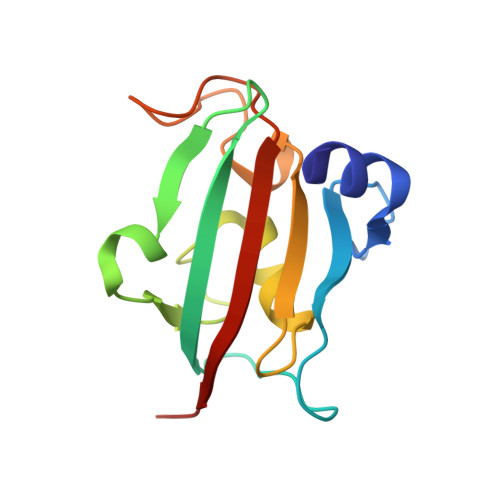Exploration of Pipecolate Sulfonamides as Binders of the FK506-Binding Proteins 51 and 52.
Gopalakrishnan, R., Kozany, C., Wang, Y., Schneider, S., Hoogeland, B., Bracher, A., Hausch, F.(2012) J Med Chem 55: 4123-4131
- PubMed: 22455398
- DOI: https://doi.org/10.1021/jm201747c
- Primary Citation of Related Structures:
4DRQ - PubMed Abstract:
FK506-binding proteins (FKBP) 51 and 52 are cochaperones that modulate the signal transduction of steroid hormone receptors. Single nucleotide polymorphisms in the gene encoding FKBP51 have been associated with a variety of psychiatric disorders. Rapamycin and FK506 are two macrocyclic natural products, which tightly bind to most FKBP family members, including FKBP51 and FKBP52. A bioisosteric replacement of the α-ketoamide moiety of rapamycin and FK506 with a sulfonamide was envisaged with the retention of the conserved hydrogen bonds. A focused solid support-based synthesis protocol was developed, which led to ligands with submicromolar affinity for FKBP51 and FKBP52. The molecular binding mode for one sulfonamide analogue was confirmed by X-ray crystallography.
Organizational Affiliation:
Max Planck Institute of Psychiatry, Kraepelinstrasse 2, 80804 Munich, Germany.



















